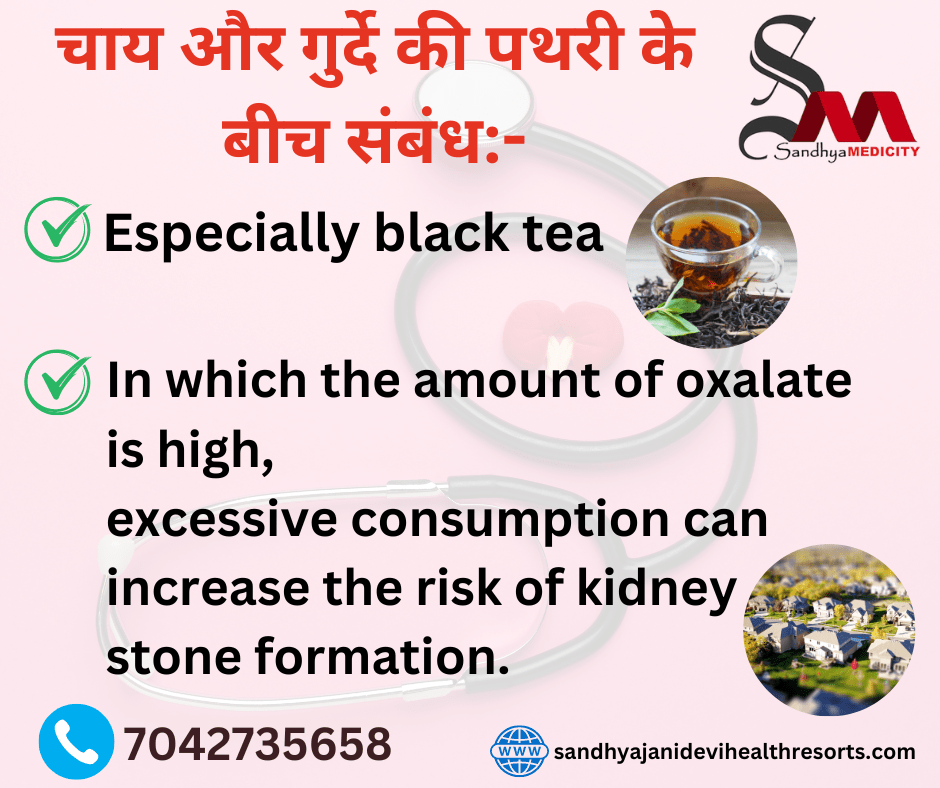We discuss interesting topics related to health and wellness. We’ll tackle a hotly debated question: Does tea cause kidney stone? Tea is a beloved drink consumed by millions of people around the world, so it is important to address any concerns about its potential impact on our health.

Understanding Tea Causes Kidney Stones
Let us have a clear understanding of Tea Cause Kidney Stone. Kidney stones are hard deposits that form in the kidneys when certain substances like calcium and oxalate become concentrated. These deposits can vary in size, causing extreme pain and discomfort to those affected.
The connection between tea and kidney stones
Let’s explore the possible connection between tea consumption and kidney stones. Some studies suggest that excessive consumption of tea, especially black tea, which is high in oxalate, may increase the risk of kidney stone formation.
However, it is important to note that this association is still under debate and further research is needed to draw definitive conclusions.
The role of oxalates in tea Tea Causes Kidney Stones
To understand the tea-kidney stone connection, we need to focus on a compound called oxalate. Oxalate is found naturally in many foods, including tea.
When oxalate combines with calcium in the kidneys, it can cause kidney stones. However, the amount of oxalate can vary greatly among different tea varieties.
Analysis of Tea Varieties – Tea Cause Kidney Stone
Let us discuss some popular tea varieties and their oxalate content. Black tea, which has gone through a complete oxidation process, has higher levels of oxalate than green or white tea.
However, levels can still vary within the same range depending on factors such as growing conditions and processing methods.
Moderation is the key – Tea Cause Kidney Stone
Considering the potential risks, it is important to consume tea in moderation if you are concerned about kidney stones. Enjoying 1-2 cups of tea a day is generally considered safe and should not pose a significant risk for most individuals.
However, if you already have kidney problems or a history of kidney stones, it is advisable to consult your health care professional.
Other factors affecting kidney stone formation
Host: While tea can have an effect on kidney stone formation, it’s important to remember that other factors play an important role. Dehydration, dietary choices, family history and certain medical conditions contribute to the risk of developing kidney stones
. Maintaining proper hydration and adopting a balanced diet can help reduce these risks.
Promote kidney health
Let’s turn our attention to promoting kidney health. Drinking adequate amounts of water, around 8-10 cups throughout the day, can help dilute substances in the kidneys, thereby reducing the risk of stone formation. Additionally, including foods rich in calcium but moderate in oxalate, such as dairy products, may be beneficial.
Conclusion:-
Does tea cause kidney stones? While excessive consumption of high-oxalate tea may increase the risk, tea consumption in moderation is generally considered safe. It is important to maintain a balanced lifestyle with a focus on hydration and dietary choices to promote optimal kidney health.
If you have concerns about kidney stones or any health issue, the best course of action is always to seek the advice of a medical professional.
Ayurveda Kidney Treatment
Sandhya Jani Devi Health Resort we provide Ayurveda Treatment



